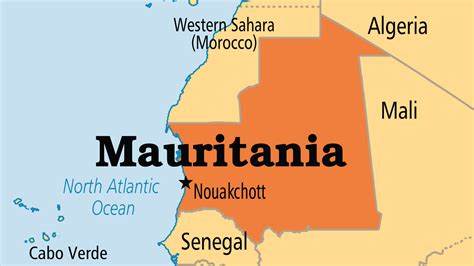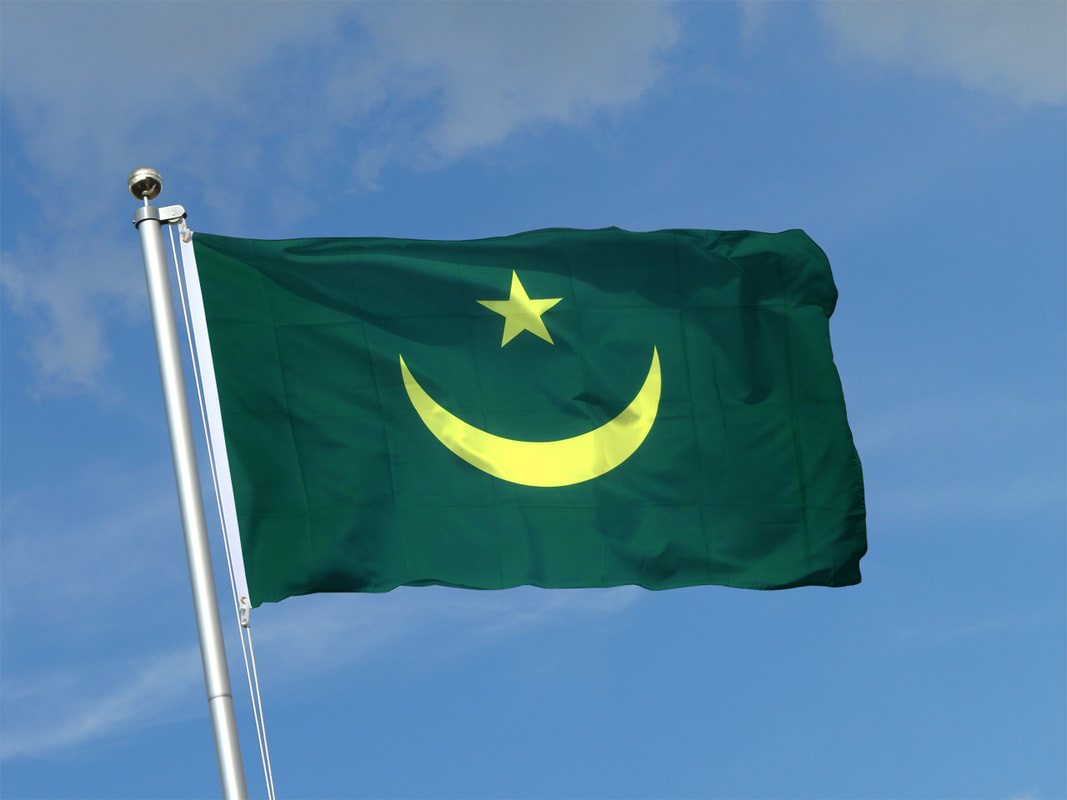Mauritania, formally the Islamic Republic of Mauritania is a sovereign country in Northwest Africa. It is bordered by the Atlantic Ocean to the west, West Sahara to the north and northwest, Algeria to the northeast, Mali to the east and southeast, and Senegal to the southwest. This is the 11th largest country in Africa -by land area, and the 28th largest in the world, measuring 400,000 square miles. Most of this area-90% is in the Sahara. Most of Mauritania's 4.3 million people live in the south of the country, with a third concentrated in the capital-- Nouakchott, on the Atlantic coast.
Berbers settled on Mauritania by the third century AD. Arab tribes also moved there by the late seventh century, bringing with them Islam, Arab culture , and the Arabic language. By the 20th century, the French colonized this African country making it part of French West Africa. Mauritania became independent in 1960, but has since experienced recurrent coups and military dictatorship. The country has an abundance of iron ore and petroleum but struggles to maintain a vibrant economy. Its main economic engine runs on agriculture, fishing, and livestock.
Since the Arabic incursion, most Mauritanians are of the Sunni sect of Islam. However, multi ethnicity is allowed with the presence of the Bidhans, or so-called "white moors," make up 30% of the population, while the Haratin, or so- called "black moors," compose 40%. Both groups reflect a fusion of Arab-Berber ethnicity and culture.
The Mauritanian government is a unitary semi-presidential republic. It has a president, prime minister, and president of the national assembly. Its current GDP stands at estimated 34 billion USD.
Berbers settled on Mauritania by the third century AD. Arab tribes also moved there by the late seventh century, bringing with them Islam, Arab culture , and the Arabic language. By the 20th century, the French colonized this African country making it part of French West Africa. Mauritania became independent in 1960, but has since experienced recurrent coups and military dictatorship. The country has an abundance of iron ore and petroleum but struggles to maintain a vibrant economy. Its main economic engine runs on agriculture, fishing, and livestock.
Since the Arabic incursion, most Mauritanians are of the Sunni sect of Islam. However, multi ethnicity is allowed with the presence of the Bidhans, or so-called "white moors," make up 30% of the population, while the Haratin, or so- called "black moors," compose 40%. Both groups reflect a fusion of Arab-Berber ethnicity and culture.
The Mauritanian government is a unitary semi-presidential republic. It has a president, prime minister, and president of the national assembly. Its current GDP stands at estimated 34 billion USD.

